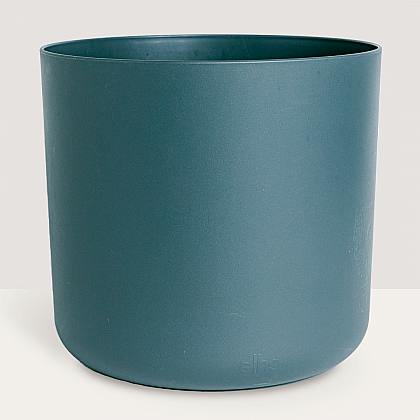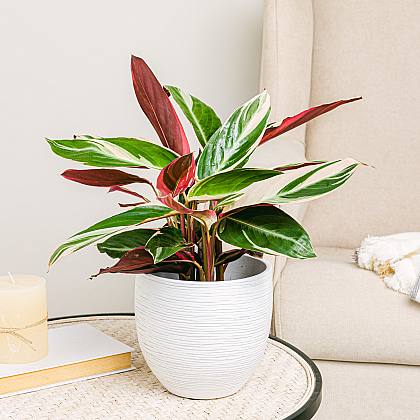Healing effect of sunflower: possible uses and benefits
The sunflower is a plant that is familiar to many of us. But did you know that it is not only beautiful to look at, but also has a healing effect on our body?...
The sunflower is a plant that is familiar to many of us. But did you know that it is not only beautiful to look at, but also has a healing effect on our body? In this article, we will look at the uses and benefits of sunflower. In particular, we will focus on their importance in naturopathy, their effect on the skin, their use in cooking and cosmetics, as well as their role as dietary supplements. In addition, we will also look at how to grow sunflowers in your own garden and what benefits they have for the environment. Overall, the sunflower is an extremely valuable plant for our health, nutrition and environment.
The importance of sunflower in naturopathy
The sunflower is of great importance in naturopathy. Its flowers and leaves contain numerous health-promoting substances such as essential oils, flavonoids and phenolic acids. These ingredients have anti-inflammatory and antioxidant effects, which can help with various ailments. Sunflower petals, for example, are used to make tea, which has a calming effect and can provide relief from colds and gastrointestinal complaints. The sunflower is also used externally. Its petals can be used as a poultice for skin inflammation, burns or insect bites, as they have a calming and healing effect. In addition, a valuable oil is extracted from the seeds of the sunflower, which is used in a variety of ways in naturopathy. Sunflower oil contains many unsaturated fatty acids and vitamin E, which makes it a valuable nourishing oil for the skin. It moisturizes, supports the regeneration of the skin and can help with dry skin, psoriasis or neurodermatitis. In addition, sunflower oil can also be used internally, for example as a natural cholesterol-lowering agent or to support digestion. The sunflower is therefore a valuable plant in naturopathy with a wide range of applications for health and well-being.
The healing effect of sunflower on the skin
The sunflower has a healing effect on the skin and is therefore often used in naturopathy. Sunflower oil, which is extracted from the seeds of the plant, is particularly rich in vitamin E and has a moisturizing and regenerating effect on the skin. It helps to soothe and nourish dry and stressed skin. In addition, sunflower oil also contains linoleic acid, which has anti-inflammatory properties and can provide relief from skin irritations or minor burns. Due to its light texture, the oil is quickly absorbed into the skin and leaves a pleasant feeling without a greasy residue. In addition to sunflower oil, sunflower petals can also be applied directly to the skin. They contain essential oils that have a calming effect and can help reduce redness and irritation. The healing effect of sunflower on the skin makes it a valuable ingredient in natural skin care products such as creams, lotions or masks.
Sunflower oil: An all-rounder in the kitchen and cosmetics
Sunflower oil is an all-rounder in cooking and cosmetics. It is an extremely versatile oil that is widely used in the kitchen due to its mild flavor and high heat resistance. It can be used for frying, baking, and deep-frying, and is also a healthy alternative to butter and margarine. In addition, it is rich in vitamin E and unsaturated fatty acids, making it a great moisturizer for the skin. It can be used as a natural makeup remover, massage oil, or moisturizer. Sunflower oil can also help with sunburn by soothing and healing the skin. In addition, sunflower oil also contains linoleic acid, which helps reduce inflammation and fight acne. In the cosmetics industry, sunflower oil is often used as a base oil for essential oils to further enhance its healing properties. It is also an important ingredient in hair products, as it strengthens hair and makes it shiny. It is important to make sure that you pay attention to quality when buying sunflower oil and choose cold-pressed oil to ensure that all valuable nutrients are preserved. Overall, sunflower oil is an excellent choice for people looking for a healthy and versatile ingredient for their kitchen and beauty routine.
Sunflower seeds as a healthy snack and dietary supplement
Sunflower seeds are not only a delicious snack, but also a healthy dietary supplement. They are rich in important nutrients such as proteins, unsaturated fatty acids and fiber. Especially for vegetarians and vegans, sunflower seeds are a good source of plant-based protein. They also contain many vitamins and minerals such as vitamin E, magnesium and iron.
There are many ways to enjoy sunflower seeds. You can simply eat them raw or roasted as a snack in between meals or use them as an ingredient in salads, cereals or baked goods. They are also a delicious addition as a topping on soups or vegetable dishes.
In addition to their high nutritional value, sunflower seeds also have positive effects on health. For example, they can help lower cholesterol and reduce the risk of cardiovascular disease. Sunflower seeds can also have a supportive effect on digestive problems.
However, in order to benefit from the healthy properties of sunflower seeds, you should pay attention to the quality. It is best to choose organic products from controlled cultivation and avoid variants with additives such as salt or sugar.
Overall, sunflower seeds are a great addition to a healthy diet and also offer a variety of uses in the kitchen.
Sunflowers as a natural protection for bees and other insects
Sunflowers are not only a feast for the eyes in gardens and fields, but also a valuable plant for the protection of bees and other insects. The sunflower's large yellow flowers attract numerous pollinators, including bees, butterflies and bumblebees. These insects help the sunflower to be pollinated and allow it to reproduce. At the same time, the flowers of the sunflower provide insects with a rich source of food in the form of nectar and pollen.
The sunflower is particularly bee-friendly due to its shape and arrangement of its inflorescences. The numerous small individual flowers on the basket of the sunflower allow the bees to easily access the nectar. In addition, the petals of the sunflower are wide enough to serve as a landing site for the pollinators. This makes it easier for insects to access the flower and allows them to collect food efficiently.
However, the sunflower not only provides food for bees and other insects, but also serves as a natural protection against pests. Certain insects, such as aphids or thrips, are attracted to the sunflowers and take up their habitat there. This will keep them away from other plants, which will be protected from infestation.
Overall, the sunflower is a valuable plant for biodiversity and the protection of bees and other insects. With its attractive flowers, it attracts pollinators and provides them with a rich source of food. At the same time, it acts as a natural protection against harmful insects. So if you want to make your garden bee- and insect-friendly, you should definitely not do without the sunflower.
How to grow sunflowers in your own garden
If you want to grow sunflowers in your own garden, there are a few simple steps you can follow. First of all, you should choose the right location. Sunflowers need a lot of sunlight, so make sure the chosen area gets at least six hours of direct sunlight per day. The soil should be well-drained and loose so that the roots of the sunflower can develop well.
The next step is to prepare the soil. Remove weeds and loosen the soil with a hoe or fork. Add organic fertilizer to improve nutrient supply. After that, you can plant the seeds in the ground. Make sure you leave enough space between the seeds, as sunflowers need plenty of space to grow.
During the growing process, it is important to water regularly, especially during dry periods. Make sure the soil is moist but not too wet. Once the sunflowers start blooming, you can provide them with extra protection by shielding them from strong winds.
Once the flowers have faded and the seeds mature, you can harvest the seeds. Allow the flower heads to dry completely, then carefully remove the seeds. These can be used as a healthy snack or to prepare food.
Growing sunflowers in your own garden can be a rewarding experience. Not only does it bring beautiful flowers to your garden, but it also provides habitat and food for bees and other insects. So what are you waiting for? Get some sunflower seeds and start growing in your own garden!
Conclusion: The sunflower as a valuable plant for health, nutrition and the environment
The sunflower is one of the most versatile plants in existence. Not only does it offer stunning beauty, but it also offers numerous health and nutritional benefits, as well as environmental protection features. These properties make it a valuable plant for people and the planet. Sunflowers are rich in nutrients such as vitamin E, magnesium, and fiber, making them a nutritious food. Sunflower oil is an all-rounder in cooking and cosmetics, as it has a high content of unsaturated fatty acids and is perfect for skin care. Sunflower seeds are also a healthy snack and supplement, as they are rich in proteins and minerals. The sunflower also plays an important role in the environment, as it attracts bees and other insects and provides them with food. By growing sunflowers in your own garden, you can also help protect the environment. The importance of sunflower in naturopathy is also noteworthy, as it has anti-inflammatory properties and can help treat skin diseases such as eczema and psoriasis. In summary, the sunflower is an incredibly valuable plant for health, nutrition and the environment. We should take advantage of their benefits to keep our bodies and environment healthy.
The sunflower is a versatile and valuable plant that is not only visually impressive, but also offers numerous health and environmental benefits. From its use in naturopathy, to its use as a food and cosmetic product, to its importance as a protection for bees and other insects, the sunflower has a lot to offer. If we consciously engage with this plant and integrate it into our everyday lives, we can not only benefit from its positive properties, but also contribute to the protection of the environment. Perhaps we should ask ourselves more often how we can make even better use of this valuable resource and what other applications there are. Let's think together about how we can use the healing effect of sunflower even more for ourselves and our environment


